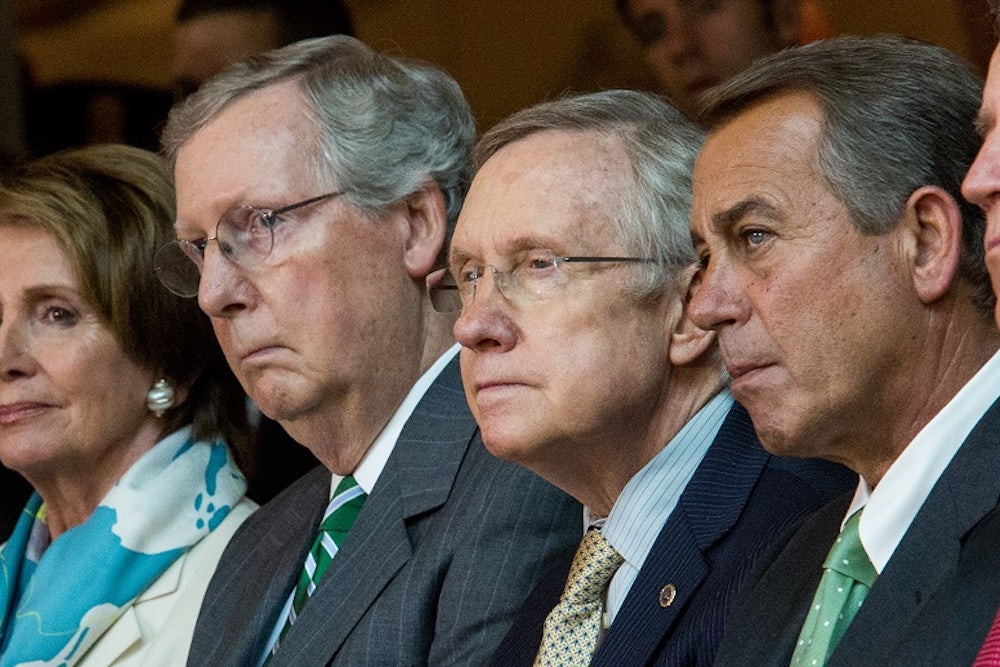Few pundits expect the 114th Congress to be very productive. If it avoids another government shutdown and debt ceiling fight, that would probably—and sadly—qualify as a success. But there's some hope for a compromise on corporate tax reform, since both President Barack Obama and Republicans want to lower the 35 percent statutory rate and close tax loopholes.
That may sound like a ripe area for a deal, but it's not. Lori Montgomery shows why in her piece Monday in the Washington Post:
Absent presidential buy-in, Republicans face the unappealing prospect of pursuing tax reform on their own, and they are divided over how to proceed.
In the House, senior GOP aides said, Speaker John A. Boehner (Ohio) and Rep. Paul Ryan (Wis.), who is expected to be elected this week to chair the tax-writing Ways and Means Committee, are reluctant to ask lawmakers to take difficult votes to repeal popular tax breaks when there’s no assurance that the resulting bill would fulfill important Republican goals or win Obama’s signature.
Why would a congressman risk voting to close a favored tax break for a powerful special interest if they aren’t sure that corporate tax reform will make it into law? Such a vote carries a huge risk—infuriating the special interest—with a very uncertain reward. Party leaders must convince their members that tax reform will actually pass, but they, too, face steep pressure from big business and K Street.
That, ultimately, is the real obstacle with corporate tax reform. There are powerful business interests that want to lower the statutory rate and keep their favored tax break—and will pressure Congress to make that happen. As Jared Bernstein explained at the Post a week ago, “Unless policymakers are willing to stand up to them, it’s awfully hard to see a path forward on corporate tax reform in this or any other Congress that’s beholden to contributions from those with a vested interest in protecting the status quo.”
